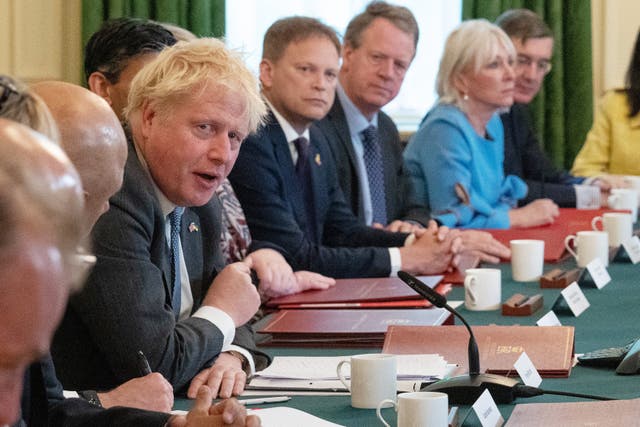
Ian Payne 4am - 7am
21 June 2022, 14:04

The Prime Minister stressed the need for ‘fiscal discipline’ to avoid further stoking rising costs.
Pay rises in line with inflation for public sector workers are not “feasible” as they would further stoke soaring costs, Downing Street has said.
Boris Johnson and Rishi Sunak stressed the “importance of fiscal discipline” at Tuesday’s Cabinet meeting, the Prime Minister’s official spokesman said.
“The Prime Minister said the public would expect the Government to stick within their means at a time of global cost-of-living pressures,” the official stated.
“The Chancellor emphasised that the Government had responsibility to not take any action that would feed into inflationary pressures, or reduce the Government’s ability to lower taxes in the future.”

It comes as passengers faced chaos during the biggest rail strike in a generation, with unions calling for wages to keep up with soaring prices.
But Boris Johnson noted “the settlement at the spending review was a relatively generous one”, the spokesperson said, adding that public sector pay increases in line with inflation were “not feasible across the board at the moment”.
“He thinks that chasing inflation, which is in double digits, not low single digits, would be inflationary.”
But the official defended maintaining the triple lock on pensions.
Pressed on whether raising pensions in line with inflation would not be inflationary, he said: “The Chancellor needs to consider it all in the round and the view is that we can meet that commitment without stoking those inflationary pressures.
“But we did take difficult decisions with regards to the triple lock, a temporary one-year suspension.”

The Government does want public sector workers to get pay increases, the spokesman insisted, with the exact levels to be recommended by pay review bodies over the summer months.
Responding to criticism over plans to reduce controls on City bosses’ pay while calling for wage restraint in the public sector, the spokesman said the Government was exploring how non-executive directors were paid, not how much.
It comes after reports that the Cabinet Office minister wrote to the Chancellor with a plan for “deregulatory measures to reduce the overall burden on business” and attract more companies to the UK following Brexit, including scrapping restrictions on director and non-executive director remuneration.
“There’s no plans to change the cap on executive pay, I think the issue that’s being investigated is how non-executive directors are paid rather than what CEOs or directors are paid,” the spokesman said.
What was being considered was removing “any unnecessary restrictions on paying non-executive directors shares”, he added.
“Making the change could ensure that these individuals are more fully invested in the success of the companies they’re involved in, which obviously helps protect and generate jobs, growth and investment.”